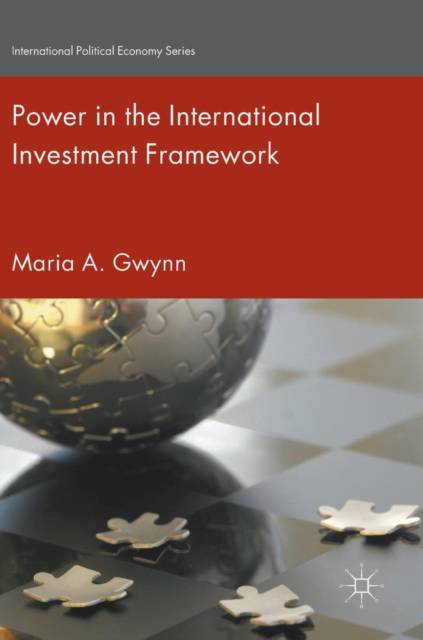
- Afhalen na 1 uur in een winkel met voorraad
- Gratis thuislevering in België vanaf € 30
- Ruim aanbod met 7 miljoen producten
- Afhalen na 1 uur in een winkel met voorraad
- Gratis thuislevering in België vanaf € 30
- Ruim aanbod met 7 miljoen producten
Zoeken
Omschrijving
This book offers a unique analysis of bilateral investment treaties (BITs). By developing a new, power-focused paradigm for understanding the international investment framework, the author illustrates why there was no paradoxical behaviour when developing countries agreed to the BIT regime, and what has spurred their reaction against it now. She also examines how attempts to regulate investment at a multilateral level have failed, and why the rules of the framework are evolving. Inspired by the work of Susan Strange, Gwynn fills a significant lacuna in our understanding of these issues by demonstrating how power determines the actions of all those involved. This holistic reinterpretation of international investment focuses in particular on Latin America, but has wider implications for the negotiation of new treaties, including such controversial provisions as the Transatlantic Trade and Investment Partnership. It will appeal to lawyers, economists, political scientists and scholars ofLatin America.
Specificaties
Betrokkenen
- Auteur(s):
- Uitgeverij:
Inhoud
- Aantal bladzijden:
- 243
- Taal:
- Engels
- Reeks:
Eigenschappen
- Productcode (EAN):
- 9781137571427
- Verschijningsdatum:
- 9/08/2016
- Uitvoering:
- Hardcover
- Formaat:
- Genaaid
- Afmetingen:
- 154 mm x 220 mm
- Gewicht:
- 430 g

Alleen bij Standaard Boekhandel
+ 305 punten op je klantenkaart van Standaard Boekhandel
Beoordelingen
We publiceren alleen reviews die voldoen aan de voorwaarden voor reviews. Bekijk onze voorwaarden voor reviews.











